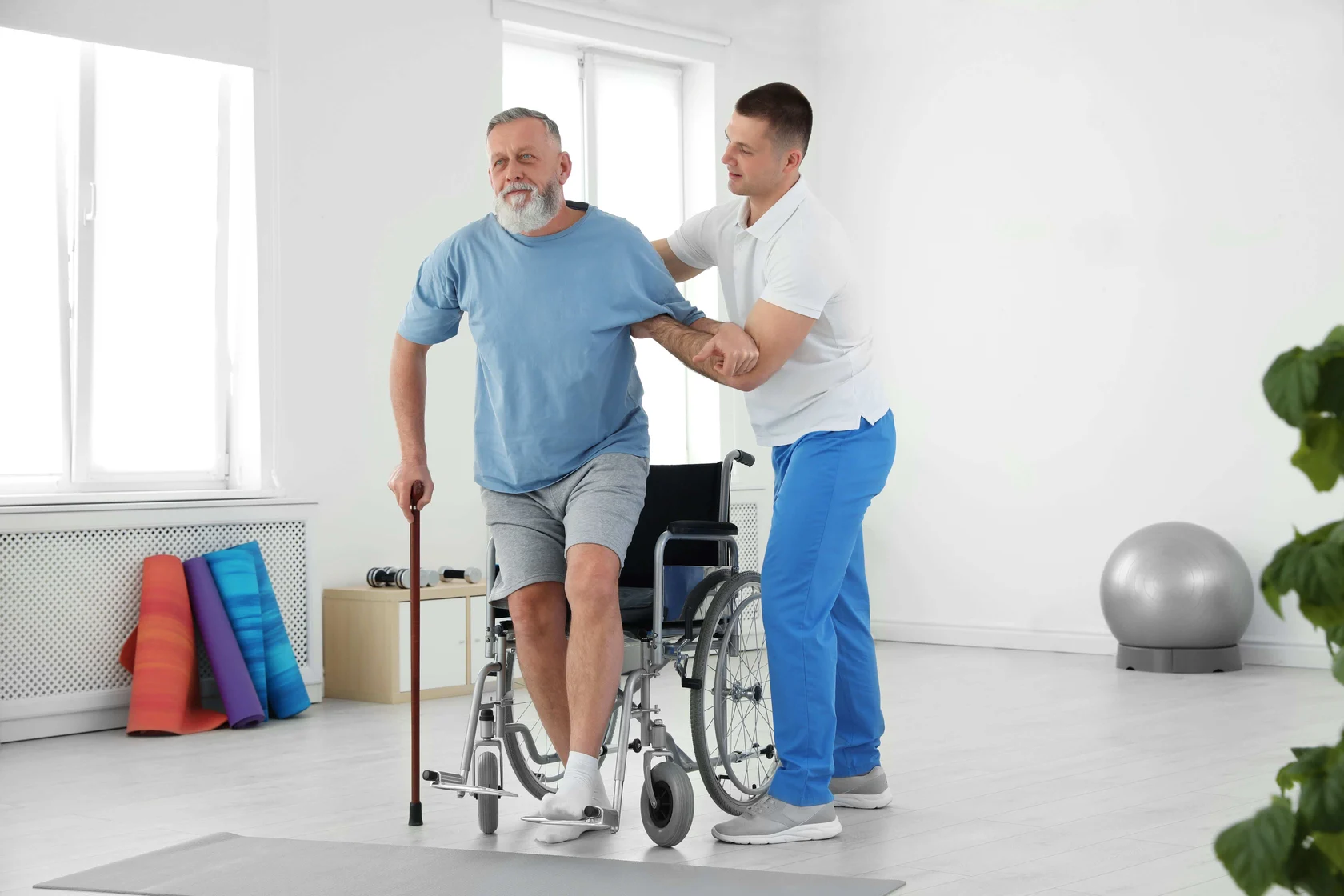
A stroke can change life in an instant — affecting movement, speech, memory, and independence. But recovery doesn’t end when the emergency is over. In fact, rehabilitation is where healing truly begins.
Stroke rehabilitation is a structured process that helps the brain and body relearn lost functions through medical supervision, physiotherapy, and lifestyle adaptation. With India’s rapidly growing network of advanced neurorehabilitation hospitals and integrated Ayurvedic wellness centers, patients now have access to world-class recovery programs at affordable costs.
A stroke occurs when blood flow to a part of the brain is interrupted, depriving brain tissue of oxygen and nutrients. Depending on the affected area, a person may experience weakness, paralysis, speech difficulties, or cognitive impairment.
While medical intervention saves lives, it’s rehabilitation that restores function — helping patients regain independence and confidence in daily living. Early and comprehensive rehabilitation dramatically improves recovery outcomes and quality of life.
Acute Phase: Medical Stabilization
Immediately after a stroke, the priority is stabilizing the patient’s condition. This involves hospital-based care under neurologists and physiatrists who assess the type and severity of the stroke. Once the patient is medically stable, the rehabilitation journey begins — ideally within the hospital itself.
Assessment and Goal Setting
Each stroke is unique, and so is each recovery plan. A multidisciplinary team — including neurologists, physiotherapists, occupational therapists, speech therapists, and psychologists — evaluates:
Together with the patient and family, short-term and long-term recovery goals are established to guide the therapy process.
Physical Rehabilitation
The foundation of stroke recovery lies in physical therapy. It focuses on retraining muscles, improving balance, and restoring coordination. Through guided movements, postural training, and mobility exercises, the patient gradually regains control over affected limbs.
For patients with limited mobility, robot-assisted and virtual-reality-based physiotherapy — now available in leading Indian hospitals — provides additional support and motivation during recovery.
Occupational Therapy
Regaining independence in daily activities is essential for emotional and practical recovery. Occupational therapy helps patients relearn tasks such as dressing, eating, writing, and using assistive devices. Therapists also train families to create safe home environments that reduce fall risks and promote independence.
Speech and Swallowing Therapy
If stroke affects the brain areas responsible for language or swallowing, speech-language therapy plays a key role. It helps patients regain communication skills, rebuild vocabulary, and manage swallowing safely to prevent aspiration and nutritional complications.
Cognitive and Emotional Rehabilitation
Stroke recovery isn’t only physical — it deeply affects the mind and emotions. Cognitive rehabilitation addresses memory, attention, and problem-solving skills, while psychological counseling supports emotional adjustment, reduces anxiety, and prevents post-stroke depression.
Family involvement and positive reinforcement are vital at this stage to maintain motivation and resilience.
Integrative and Holistic Therapies
India offers a unique advantage with the integration of Ayurveda and modern rehabilitation. Ayurvedic therapies focus on strengthening the nervous system, improving circulation, and calming the mind through natural, personalized approaches. Combined with physiotherapy and occupational therapy, this integrated model accelerates recovery and enhances overall well-being.
Long-Term Rehabilitation and Community Reintegration
Recovery doesn’t end when the patient leaves the hospital. Long-term rehabilitation focuses on maintaining progress, preventing secondary complications, and reintegrating the patient into social and professional life.
Tele-rehabilitation, follow-up consultations, and home-based therapy programs help sustain improvements and ensure continuity of care.
India, especially Kerala, has become one of the most preferred destinations for neurorehabilitation due to:
Stroke recovery is a gradual yet powerful journey — one that combines medical expertise, patient determination, and compassionate care. With the right rehabilitation program, the brain can relearn, adapt, and restore lost functions over time.
What makes Healofly unique is our holistic approach. In Kerala, we combine the science of modern medicine with the wisdom of Ayurveda and physiotherapy to accelerate recovery and restore wellness. Our multilingual support team assists Arabic-speaking patients throughout their stay, ensuring comfort and trust.
Connect with us now.
WhatsApp Us: +91 9656598858
Email: info@healofly.com
Website: www.healofly.com
Healofly – Right Place, Right Care
Healofly is an international health and wellness tourism company dedicated to connecting individuals with world-class medical care and rejuvenating travel experiences across the globe. Combining healthcare expertise with curated travel services, Healofly offers a seamless journey toward better health, recovery, and well-being.
With a trusted network of accredited hospitals, renowned specialists, and premium wellness resorts, Healofly provides personalized solutions for medical treatments, preventive health programs, and holistic healing retreats. From medical consultations and travel arrangements to accommodation and post-care support, Healofly ensures comfort, safety, and transparency at every stage of the journey.
Our mission is to make quality healthcare accessible and enjoyable by transforming necessary medical travel into a fulfilling, culturally enriching experience. Whether it’s advanced surgery, fertility treatment, dental care, spa therapy, or wellness rejuvenation, Healofly empowers clients to take control of their health while exploring the world.
+91 9656598858
Healofly By All rights reserved.
WhatsApp us